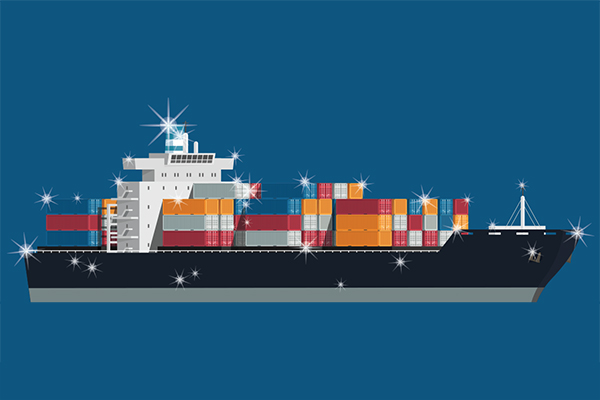Peter Moore on Pricing: Paying the piper on the high seas
Vessel owners were lucky to be able to run between continents well out of sight of government and non-government organizations for over a century.
In less than 12 months, the International Maritime Organization (IMO) regulations reducing emissions from ocean vessel fuels go into effect. Anyone who has seen a ship “blow its stack” with dirty bunker exhaust loaded with air pollutants knows why there’s a need to clean up the industry.
Vessel owners were lucky to be able to run between continents well out of sight of government and non-government organizations for over a century. The pollutants from a single ship equal thousands of automobiles—and all the while we’ve been leaning on car owners and manufacturers to reduce emissions for decades.
The economics of ocean cargo has favored large diesel engines burning cheap, semi-refined fuels. No one should be surprised that the owners dodged this international rulemaking as long as possible. In fact, my brother was an engineer and merchant marine and he would tell of the oily dirt in the engine room getting into every nook and cranny. I remember getting a tour of his workplace and being told not to touch anything, even the safety railings, or it would ruin my clothes.
In talking to ocean industry insiders, I found that many understand that it was time for an upgrade. However, no one was going to go first and either spend hundreds of thousands on scrubbers or scrap vessels in favor of new ones with clean-diesel engines that reduce pollutants by 95%. It took action by the IMO as a part of the United Nations to make everyone upgrade, and now all owners are making the necessary investment—and shippers will be paying more for cargo in nearly every trade lane. Indeed, the whole market will have to adjust.
Another unfavorable result of this massive investment is that the industry will further consolidate, as some smaller operators exit the market rather than pay to comply. Consolidation brings pricing leverage, as it has in all transportation modes.
However, there’s a silver lining of which shippers need to be aware. New vessels are larger and better designed for fuel efficiency from hull design to multi-directional propellers and thrusters to facilitate faster docking. Meanwhile, more TEUs per vessel means a lower per unit cost, while crew sizes are staying stable or being reduced—ultimately to near zero as artificial intelligence changes how booking, load planning, routing, engine and deck operations are managed.
For carriers and forwarders, I suggest that you understand your costs and are able to articulate that story to shippers because they need to explain rising rates up the ladder in their organizations.
For shippers who have to explain a perhaps 10% increase in ocean rates to their executives and customers, I suggest boning up on the issue and have the facts at your fingertips. If everyone is paying more, there’s no competitive disadvantage for your product or service.
Several clients have told me that they’re preparing to tell a “green” story to customers as they further clean up their supply chain and reduce their carbon footprint. Transportation executives on both the shipper and carrier side need to embrace this improvement on behalf of their company and their community because studies have repeatedly shown that customers will pay for greener products and services. In paying the piper, we may just learn a new moneymaking tune. •













